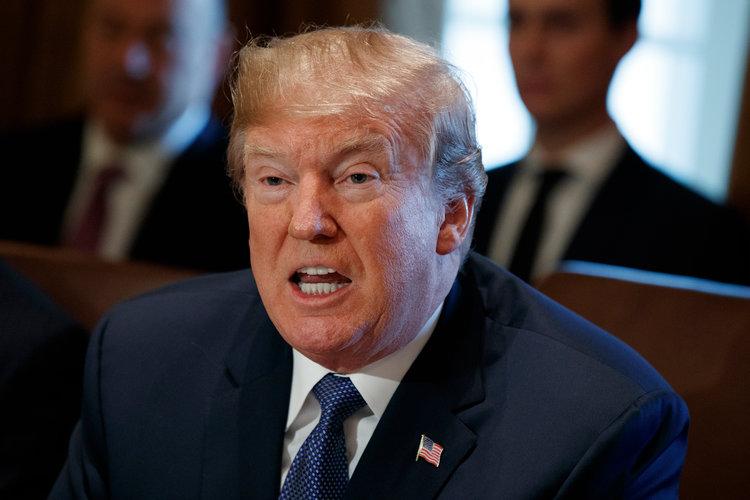The Quagmire of US Sanctions: Whither India?

The ‘Countering America’s Adversaries Through Sanctions Act’ or CAATSA, passed by the US Congress, last August targets North Korea, Iran and Russia. The sanctions imposed by the Donald Trump administration on Iran and Russia — two countries with whom India has important political, economic and strategic relations — are already having an impact on the companies in India and its relations with these countries.
The US dollar is the major currency for international transactions, including in the international trade of oil. This makes nations (including India) which depend upon the dollar and the US financial system vulnerable to pressure, and as the CAATSA particularly targets transactions using the dollar, this forces them to act according to the will of the US.
Thanks to the US sanctions, the State Bank of India (SBI) has had to issue an alert to all its branches about the hazards of engaging in business with companies that carry out trade with Iran and Russia. It has earlier been reported that UCO Bank had also asked exporters to complete all business with Iran by August this year.
This is important also because India and Iran had worked out a barter-like trade system where Indian exporters to Iran receive their payment in rupees, which is also how India made some oil payments to Iran — all to avoid the results of sanctions on dealing with Iran.
This is happening at a time when India’s Minister of External Affairs, Sushma Swaraj, claimed that “India follows only UN sanctions, and not unilateral sanctions by any country.”
Further, it has been reported that Reliance Industries Limited plans to halt oil imports from Iran. Reliance owns the world’s largest refinery complex in Jamnagar, Gujarat, which can process around 1.4 million barrels per day of crude oil. The company has taken the decision as it has significant exposure to the US financial system, where it also operates some subsidiaries. Though the Indian government may say that it does not follow any particular country’s sanctions, the economic weight of the US forces companies to comply to the will of the US.
Iran had, until 2010-11, been the second largest supplier of oil to India, but the western sanctions pushed it down to the 7th position. With the lifting of sanctions that had accompanied the Iran nuclear deal framework, imports from Iran grew once more and pushed it to the third position. Now, the artificial cut in supply that will occur as a result of sanctions, which will also force India to look elsewhere for oil, may further push up the already increasing international prices of crude oil. Given the present government’s policy of transferring the burden of hikes on to the consumers, it can also lead to further hike in fuel prices.
India also has significant strategic interests in Iran, particularly with the Chabahar port. Along with the port, India plans to build a railway line that will eventually link Afghanistan. This line is projected to be a key link for connectivity between India and Afghanistan. Further, it can also enable conectivity to Central Asia and may form part of Russia’s proposed North-South Corridor.
Russia, the other country that is a target of US sanctions, has historically been and continues to be a key ally of India. Russia is also by far India’s largest arms supplier with a 62 per cent share in India’s arms imports. Prime Minister Modi had also made a recent visit to Sochi, Russia for an informal summit with Russian president Vladimir Putin. It was reported after this visit that India had concluded price negotiations for a nearly Rs.40,000-crore deal to purchase S-400 Trium air defence missile systems from Russia. This deal has also been complicated by the sanctions and it has been reported that the two countries have been working on ways to evade the impact of the sanctions.
This comes at a time when India and US are planning to hold a “2+2” dialogue, where talks will happen between their foreign ministers and defence ministers in July. It appears that issues regarding Iran and Russia will take centrestage in these discussions.
A major question that is raised is whether these sanctions, by the US, are impinge on India’s sovereign right to trade and buy goods, including military supplies, from where it pleases — as long as such trade doesn’t run afoul of sanctions imposed by the United Nations or other multilateral fora that India is a part of. Even corporations and banks that are “Indian” choose to go against the Indian government’s strategic interests and follow the sanctions.
Though they may point to their own helplessness, the fact remains that the loss of business, access and profit they will face in going against the US sanctions is of greater weight to them then their “own” country’s interest. The question this raises is whether capitalism imperils national security?
Another question that India faces is whether, and for how long, India can continue its balancing act on the international stage of flirting with the US while also continuing its traditional and other strategic relations.
Get the latest reports & analysis with people's perspective on Protests, movements & deep analytical videos, discussions of the current affairs in your Telegram app. Subscribe to NewsClick's Telegram channel & get Real-Time updates on stories, as they get published on our website.























